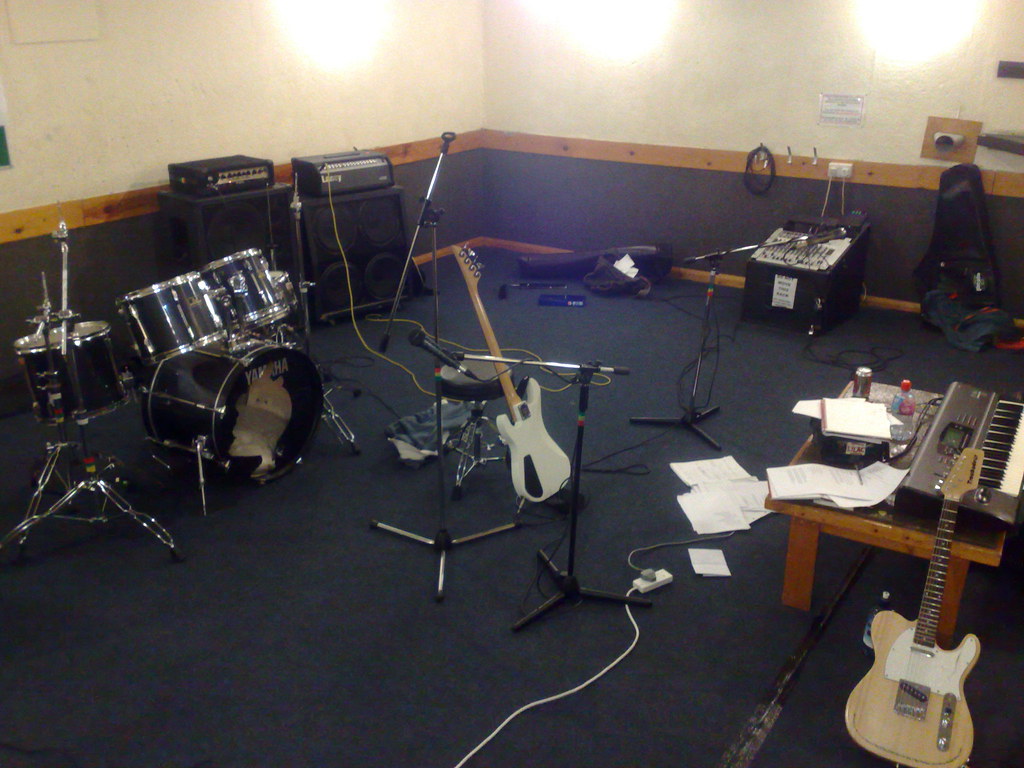A friend of mine, an Italian singer-songwriter, went to Vinylmania to showcase her album, which is beautiful and hard-earned (two years’ work, close to 100% self-financed). It was a Sunday morning. The Giro d’Italia was passing through Milano, so public transport was jammed. She had to take a 30 euro taxi to get there. Of course almost no one turned up, and she ended up performing for the people working in the nearby booths. The showcase was hosted by a journalist, who is a friend of hers and could easily have asked her the same questions on the phone or in front of a drink. She sold one CD and had to give three away for free.
An Italian bias? Hardly. Another friend of mine – she too is a singer-songwriter – lives in Denmark, and her situation is very similar. She too is very talented, she too recently released a beautiful album that incorporates a lot of hard work, and she too finds it extremely hard to find somebody to give her a chance. She’s feeling very low. All of this passion, all of this talent – and no one seems to be interested.
I have many more of these anecdotes. Too many. I find it harder and harder to feel at home in the music scene, where I lived for many years. I find fewer and fewer artists remotely interesting. I can’t stand any more wanking on guitar saturation, or 60s-70s-80s-90s references. The same people who make records refuse to buy them, and gets everything off eMule or BitTorrent. Many people perform, but almost no one is listening. So no one is evolving, and we continue to happily imitate discontinued bands – The Beatles, The Pixies, Nirvana. It’s like an orgy for necrophiliacs.
Maybe I’m just getting old, it happens. Or maybe creativity has moved on. When I was a boy, a bright young man who felt creative would naturally start a band: it was a common language, a way to leapfrog grownups in getting attention. Musicians were cool, setting trends. The most interesting boys and girls today start internet companies, or devise environmentally friendly technologies. Marco, who created the largest Italian online school when he was 14, or the CriticalCity crew are more creative than any musician in their low-waist jeans and Rickenbacker guitars. Makes sense, too: how are bright kids going to find a place in the sun in a gerontophiliac arena like music, where very few big stars are younger than 55-60?
I like to read over the list of Kublai’s creative projects. The notion of creativity employed is intentionally open, leaving it to the creative community itself to define its borders. Here’s what emerges: creativity is not remotely contained in the arts. Much hotter are technology and social ad environmental projects. As for music, it is pretty marginal.
Conclusion with unsolicited advice: don’t play, don’t start bands, stay well clear from music and the music scene. It’s a Night of the Living Dead kind of world, with the dead reaching for the living and consuming their souls. If you have other talents use them, go where you can have more space. And if, like me, you have the bad luck that you like music, and cannot really replace it with anything else, disappear in some basement to play, to listen, to search for some truth. And maybe, if you are patient enough, and loving enough, someday the times will a-change again.
[Grazie a Francesco]
